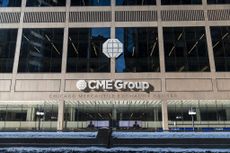Growth Investing
The latest news, updates and opinions on Growth Investing from the expert team here at MoneyWeek
-

The war dividend: how to invest in defence stocks
Western governments are back on a war footing. Investors should be prepared, too, says Jamie Ward
By Jamie Ward Published
-

Profit from other investors’ trades with CME Group
CME Group is one of the world’s largest exchanges, which gives it a significant competitive advantage
By Rupert Hargreaves Published
-

Three venture capital trusts offering growth and tax breaks
Opinion Alex Davies, founder of high-net-worth investment service Wealth Club, picks three venture capital trusts where he'd put his money
By Alex Davies Published
Opinion -

How to navigate the ups and downs of investment markets
Max King has spent over 40 years managing a fund and investing privately. Here are the key lessons he has learnt
By Max King Published
-

Galliford Try has firm foundations for strong growth
Builder Galliford Try has a finger in a wide range of pies, notably important work in the public sector
By Dr Mike Tubbs Published
-

Card Factory is a stand-out small-cap going cheap
In a digital world, we still value the personal touch. That’s good news for Card Factory, whose unique business model is suited to weather all economic storms
By Jamie Ward Published
-

How to profit from silver’s record rise
Silver often lets investors down, but there may now be room for further gains, says Dominic Frisby
By Dominic Frisby Published
-

Investors have overlooked emerging markets' top innovators
Opinion Carlos Hardenberg, portfolio manager, Mobius Investment Trust, highlights three emerging market stocks where he’d put his money
By Carlos von Hardenberg Published
Opinion -

Pinewood Technologies: a drive for growth
Pinewood Technologies’ platform is one of the best in the business. Investors should buy in
By Rupert Hargreaves Published
